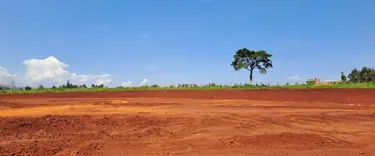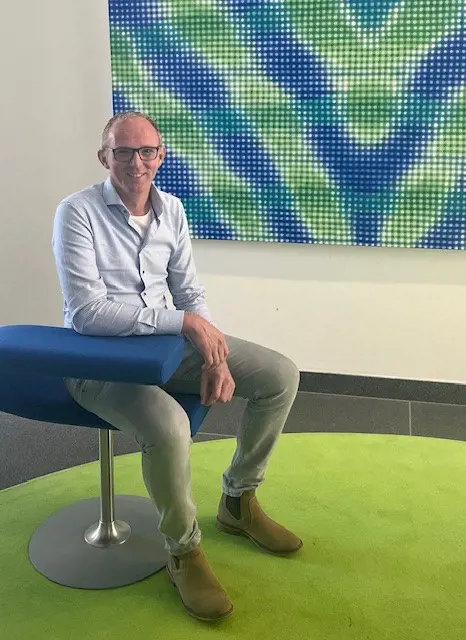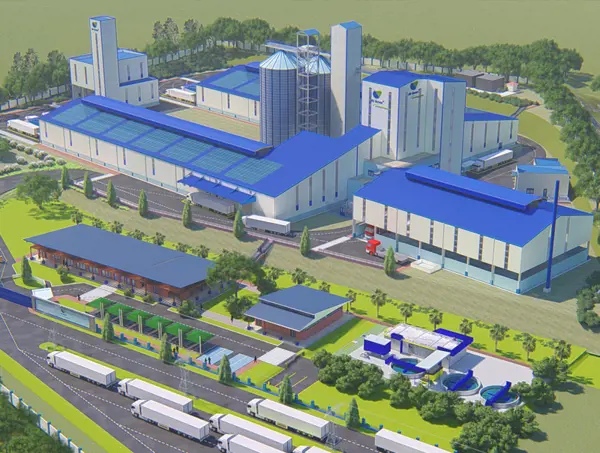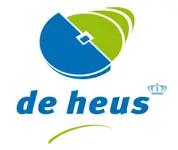
Aart Kool - International Technical Project Manager
Meet Aart Kool
Aart Kool is as International Technical Project Manager involved in various investments within De Heus. He has a deep passion for the African continent and is currently focused on the new greenfield project in Uganda. Previously, he has managed projects in Ethiopia and has been involved in a poultry genetics project in Ghana with Kuipers Breeders. He shares his vision and involvement in the construction of the new De Heus aqua feed factory in Uganda.

When did you get involved in the Uganda factory project?
In 2021, discussions emerged about establishing a local factory. Our prior engagement in exporting concentrates and aqua feed to Uganda had been gaining traction. The prospect of producing aqua feed locally by a new dedicated factory started taking shape during that period. I took charge of the project in early 2023. After visiting Uganda and the land we bought, I became deeply involved, ensuring the project transitioned from the initial idea phase to a comprehensive business plan. Together with our local team, I helped to build the business case by working out a suitable factory design and determine the capital expenditure.
Challenges and lessons in investing in Uganda
Investing and constructing projects in countries like Uganda poses unique challenges compared to Europe and Asia, primarily due to the lack of suitable infrastructure which support the building of this type of factories in many African countries. Additionally Uganda is land locked, meaning all materials are imported trough Kenia or Tanzania which is a constraint on availability and price of materials.
Weather conditions adding another layer of complexity. Uganda experiences abundant rainfall, characterized by two intense rainy seasons, making plant construction more complex. The fertile soil, while advantageous, can pose challenges for construction sites, particularly during persistent rains.
Cultural awareness is of utmost importance. As a foreign investor, demonstrating respect and mindfulness towards the local pride and achievements of the country is essential. A thorough understanding and appreciation of the local culture making us an esteemed investor and contributes significantly to successful interactions and collaborations.
The aspect of health and safety during both construction and operation also needs a lot of attention. At De Heus we feel responsible for a safe working environment for everybody on our premises. Noting that during construction more than 200 workers are on site and the local awareness on safety is low, you can imagine that strict policy and measures are very important.
On a lighter note, an interesting contrast emerges from the Netherlands experience. Unlike there, in Uganda, if you purchase land and omit placing a fence around it, you might return to find your land being utilized for growing crops one last time.
Electricity availability and sustainability in Uganda
About 92% of Uganda’s energy supply is renewable, mainly from hydropower sources. Our plant is a stone’s throw from the true source of the Nile, namely Lake Victoria, from which the Nile flows north. Hydropower plants on the Nile generate clean, renewable energy, but during the rainy season the power supply can become unreliable. Although the power is green, it is necessary to take precautions for reliability, especially during the rainy season. We are therefore also considering implementing solar power to supplement renewable energy sources.
The biomass fired steam boiler will run on wood chips, coming from off cuts of certified forestries nearby. This certification is important, as deforestation is a major problem in Uganda also. Altogether, with this feed mill we aim to become CO2 neutral finally!
Factory design
Everything surrounding the factory significantly differs from a factory in the Netherlands. It must be carefully tailored to local conditions, with every detail taken into consideration. Thorough consideration needs to be given to the practical implementation and its feasibility in the respective country. Therefore, the factory design has been completely adapted to local conditions, with the lessons we learned from other African countries implemented as well.

Why do customers get a good deal at De Heus?
Our strength lies in producing high-quality feed at a competitive price, yielding demonstrably superior results for our customers. It's not just about selling feed; we go the extra mile by offering technical support on the farms through training and guidance. This sets us apart, making a significant difference for our customers. Our uniqueness is a source of benefit for them, and I appreciate the fact that De Heus consistently views its customers as entrepreneurs like we are at De Heus as well.
